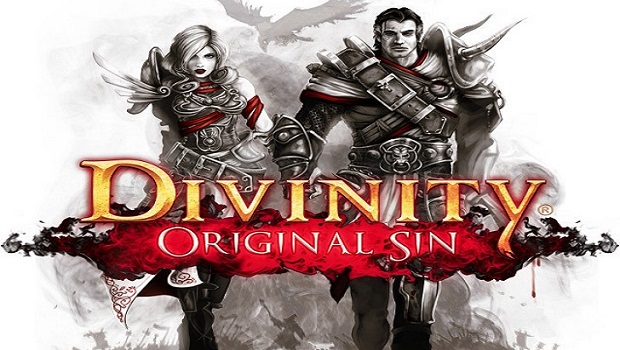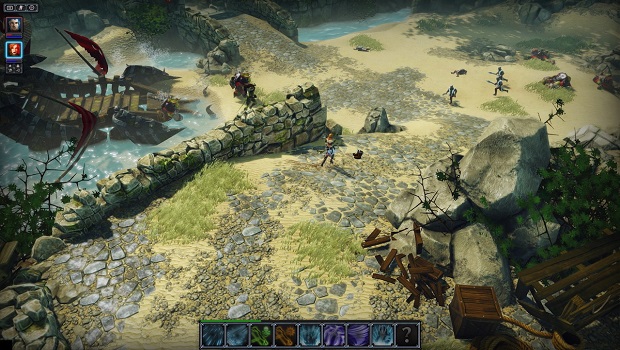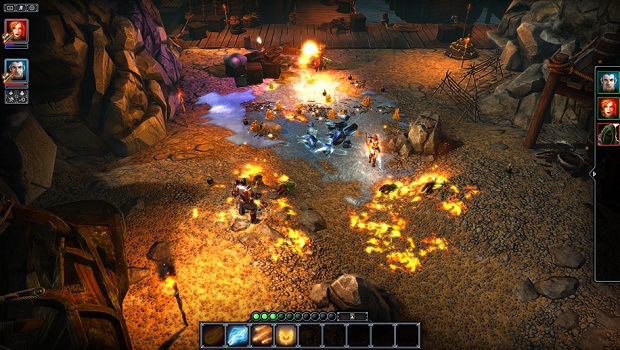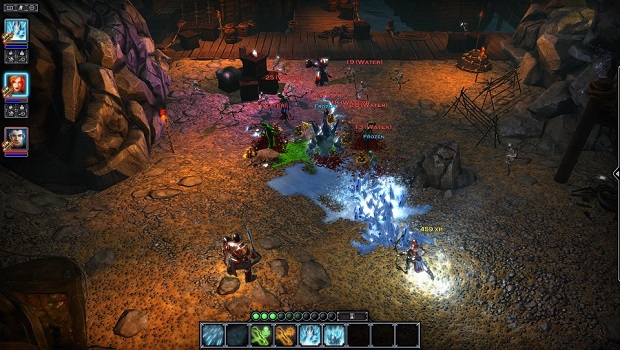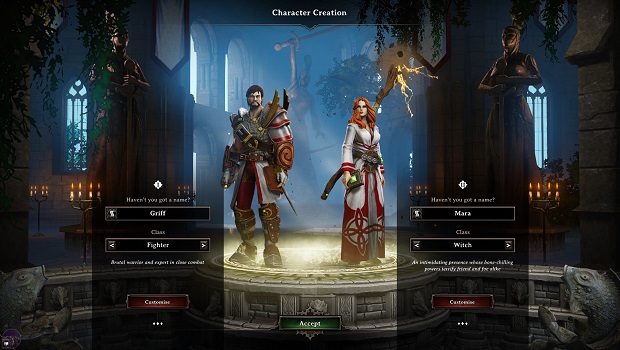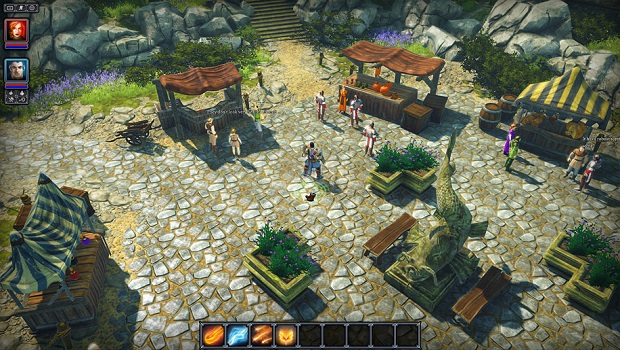I did not launch Divinity: Original Sin expecting the game to consume my life. I was ambushed by a wonderful effort, a game that harkened back to the isometric RPGs of my younger days, Baldur’s Gate, Icewind Dale and the like. Normally, though, when a game completely captures me, I have some sort of warning. Titanfall, Skyrim, Mass Effect 2- I expected greatness and received a greater share. But Divinity: Original Sin achieved more than that. As I lumbered into its presence unaware, it ambushed me with quality and addiction, a wonderful trap from which I am still trying to escape.
Divinity: Original Sin began by dumping my two characters on the beach. I received the flimsiest of guidance- there was a murder, and I was on my way into town to investigate. After that moment of hopping onto the beach, the rest of the game was pretty well up to me. While there were quests, and stories, and interesting characters, the game-world was my oyster. I could go anywhere, do anything, experiment, create, destroy, explore, and murder- whatever I could conceive, I could generally do. The anything-goes style is thematically consistent, and applied to game action, character progression, and combat. Freedom to act at will, it seemed, was my most constant companion.
On the way from the beach to town, I was confronted by a group escaping a dungeon. It was in this dungeon that I learned something that showed how wrong every other dungeon crawler I had ever played had been. You see, there’s a chest in this dungeon, but there’s no key. Not to worry, though- I simply hacked at that chest until it was open. This fact seemed to apply pretty liberally throughout the game. A key person’s house had locked doors, and I couldn’t find the key. Not to worry- one of my characters cast a fire spell on the door until it was open (and then ten minutes later I found the key- oops). Generally, the game world is constructed around basic logic. Try to pickpocket the same person multiple times? They get very observant after that first success. You can cast a lightning spell to shock one person, but if there’s a group standing in a pool of water? Cast it on the water and hit them all. Better yet, break a cask of water and create that pool yourself.
The game’s open nature wasn’t constrained to gameplay moments. The upgrade system was wide open as well. As your character levels up with experience, you can put your skill points into any skill you’d desire, be it two handed combat, one of the six schools of magic, or pick pocketing. Your previous choices don’t affect your ability to move into new areas, allowing your characters to develop as you see needs (or as you get bored). My two main characters were a roguish archer (whom I adored) and a mage, who seemed outclassed greatly by a mage who joined my party. So I began to train him in hand to hand combat, gave him a shield, and PRESTO! I had a frontline combat soldier who could open up battle with a fireball spell to boot. It was a great system that kept the game fresh, and was immensely entertaining.
The game’s tent pole feature, however, was the combat. Battles in Divinity: Original Sin were typically nail-biting affairs, intensely challenging and, when I was successful, immensely rewarding as well. The game did an excellent job of consistently throwing new conundrums at me, making it difficult to find a winning strategy. There was no method I could use to win in every battle. Fireballs were great, except that they heal fire-based enemies and can cause poison-based enemies to explode (which can be annoying when they were standing right next to my party). Rain seemed like a pointless spell, until I realized that I could use it to instantly extinguish fires that were burning my characters and weaken enemy burning warriors. And good luck with the battles that include strong enemies with a solid mix of types- the final battle of the first area was a challenge that forced me to deploy every trick in my arsenal. The game mixed its ideas well- small groups of strong enemies, or huge groups of weaker foes. I constantly needed to change my tactics. And I came to love the quick save button. I think the best thing about it, though, was that there were no filler battles. If I was in combat, it was a desperate affair for my life. There was no constant battling to keep increasing your experience, and to pad the gameplay. That balance seemed utterly perfect.
The game’s grander narrative began with an interesting premise, but as the game progressed, it dissolved to a degree among the many subplots, making it lose some of the early luster. Solving the murder was entertaining for a time, but the plotline was so involved with the other quests I encountered that it was difficult to figure out what should be the more pressing concern- continuing to investigate this murder over here, or eliminate this undead enclave over there. Still, some of the quests are interesting, and I was pulled into the greater Divinity mythology (there are even appearances of characters from other games). The game also leaned heavily on a quirky sense of humor. Being a quirky sort of fellow, I greatly enjoyed the jokes, especially the tombstones.
From a character development point of view, I ran into a wide variety of personalities, with differing attitudes and prejudices. Some of them wanted to join my party and I heartily agreed (four is better than two, I think you’ll agree). But the most interesting character development took place between my two main characters. They would occasionally engage in banter, which would flesh out their personality traits. Dialogues choices would make them kinder or heartless, more lawful and so on. The conversations were interesting, and if the game is played in multplayer, you can have a dialogue where you don’t actually control the responses on both sides. These aside conversations were an interesting addition and added to my fondness for my main characters quite a bit.
Divinity: Original Sin was a pleasure. As a single player game, it is the only one so far in 2014 that has managed to capture my attention in a compelling way. It’s a lengthy effort, taking upwards of 50 hours to play to completion, and a full examination of the world would take many more hours than that. But the game’s greatness is not limited to time. Divinity: Original Sin is uniquely compelling, satisfying, and engrossing. I didn’t feel obligated to spend all of those hours in game so much as I absolutely needed to. Original Sin is an effort worthy of everyone’s attention, and is one of the best games of the year.
Divinity: Original Sin was reviewed using final code provided by the developer.
